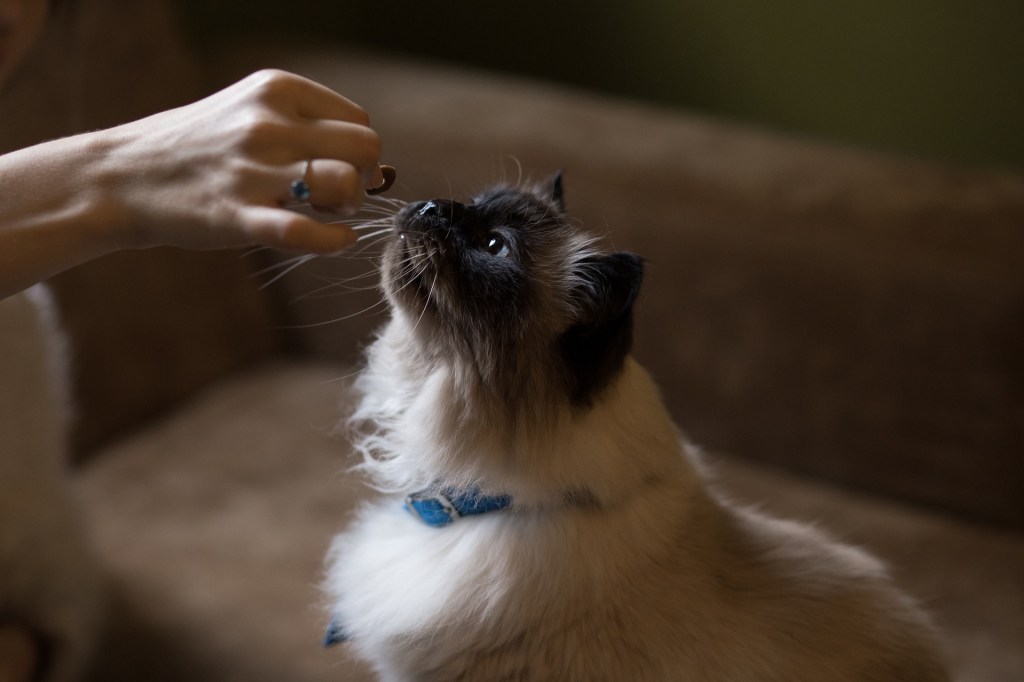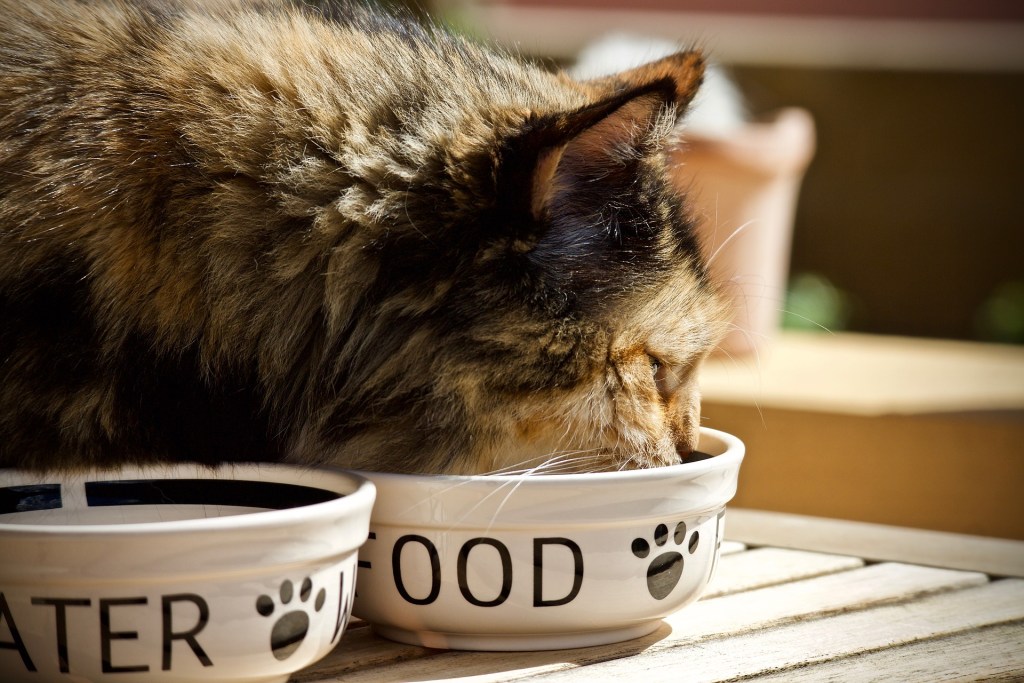If you’ve ever searched for a list of foods toxic to dogs, then you already know allowing your furry best friend to ingest a chocolate bar can have tragic consequences. But is chocolate bad for cats? Although your feline fur baby is much less likely to scarf down a slab of chocolate cake while you have your back turned, chocolate poisoning does occur in cats, too, and it can have equally life-threatening consequences.
Keeping your cat safe is your top priority, which makes knowing the symptoms of chocolate ingestion vitally important. Knowing the proper steps to take in case your cat eats foods she shouldn’t might just save her life. Here’s what you should know.

Is chocolate bad for cats?
According to Oakland Veterinary Referral Services, chocolate contains caffeine and theobromine. Both of these ingredients are toxic to cats, and if a cat ingests large amounts of these substances, they can die.
Certain types of chocolate are more harmful than others. While milk chocolate is still toxic, dark chocolate and baker’s chocolate both contain higher amounts of cocoa. Cocoa contains both caffeine and theobromine, making these types of chocolate more toxic than other varieties.
In short, it’s important to never let your cat eat chocolate.

What to do if your cat eats chocolate
If your cat accidentally eats chocolate, it’s important to act quickly because your cat’s condition can rapidly worsen. According to Dr. Evan Ware at Wedgewood Pharmacy, a cat who is experiencing chocolate poisoning might exhibit signs like vomiting, diarrhea, weakness, and rapid breathing. His temperature may become elevated, and he might display rigid muscles. If the condition progresses, then your cat could experience seizures, a heart attack, a coma, and ultimately, death.
If you think your cat is experiencing chocolate poisoning, then you need to take him to your vet or the nearest emergency clinic right away. Try to provide the vet with as much information as possible, including the type of chocolate your cat ate, how much he consumed, and when he ate it.
Your vet will examine your cat and may conduct laboratory tests, including a chemical blood profile and an ECG to examine your cat’s heart function. In some cases, your vet might induce vomiting to help remove any remaining chocolate from your cat’s stomach. Your cat may also be given intravenous fluids to keep him hydrated and help his body cleanse out the toxins.
Other foods that are toxic to cats
Chocolate isn’t the only food that’s toxic to cats. Oakland Veterinary Referral Services notes that many common foods like grapes and raisins, onions, garlic, avocado, raw dough, alcohol, uncooked eggs, and raw meat are toxic (or at least unhealthy) for cats.
To be safe, only feed your cat human foods that you know are safe and healthy for him. Carrots, green beans, bananas, and cooked chicken or turkey without the skin or bones are all good options. Also, be sure to consider whether your cat has any health issues that might affect which foods he can safely consume. It’s always best to discuss dietary changes with your vet.

Keeping your cat safe around toxic foods
Many cats don’t find chocolate to be a highly appealing flavor, so it’s somewhat rare for cats to experience chocolate poisoning. However, it’s still important to take steps to keep your cat safe when you have toxic foods around. If you’re hosting a party, ask your guests to avoid feeding your pets any human foods. Keep pets out of the kitchen and any rooms where food is being consumed. When you’re unable to supervise food directly, make sure that it’s secured and covered, so your pets can’t access it.
Closing thoughts
It can be tempting to give your cat bits of food off of your plate, but this can lead to accidental poisoning, especially if you’re feeding him from a dish that’s been cooked with spices or onions. If you do give your cat treats, prepare those foods separately and only give your cat these treats in moderation. Sudden dietary changes can upset your cat’s digestive system and lead to problems like vomiting and diarrhea.
Feeding lots of human foods can also prompt your cat to eat less of his regular cat food, which is nutritionally balanced specifically for cats. This can result in your cat not getting enough nutrition. Additionally, feeding your cat high-calorie human foods can lead to weight gain and obesity. To be safe, it’s best to stick to cat food and cat treats, as well as the occasional bit of human food that your vet has approved.


